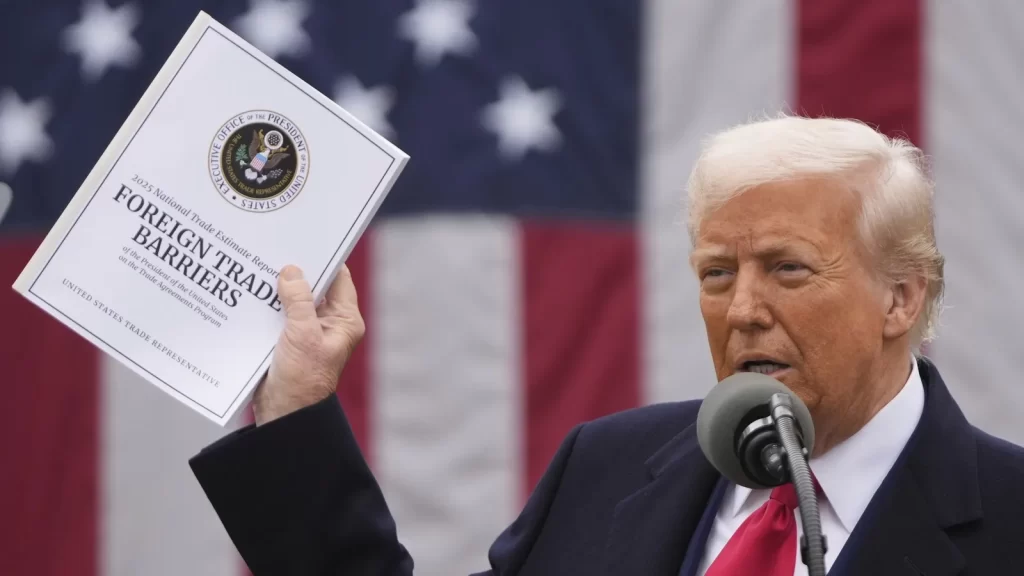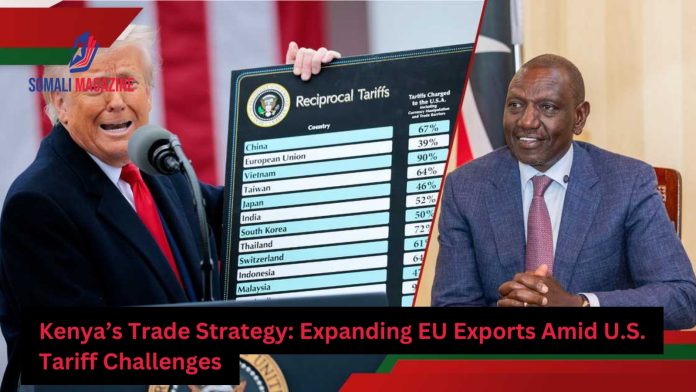Facebook Twitter (X) Instagram Somali Magazine - People's Magazine
Kenya is ramping up efforts to expand its exports to the European Union (EU) following the imposition of new tariffs by U.S. President Donald Trump, which have disrupted trade flows with African nations. The move comes as Kenya seeks to mitigate the impact of the 10 percent tariff imposed on its goods, particularly in the horticultural and textile sectors, which have been hit hardest by the policy shift.
At the second edition of the EU-Kenya Business Forum in Nairobi, Investment, Trade, and Industry Cabinet Secretary Lee Kinyanjui emphasized the importance of diversifying Kenya’s export markets to reduce reliance on the U.S. He noted that Kenya’s exports to the EU have been steadily increasing under the Economic Partnership Agreement (EPA), which was signed in December 2023 and ratified in April 2024 before coming into force in July 2024.
Kinyanjui highlighted the need for Kenya to balance its trade strategy, ensuring that disruptions in one market do not cripple the country’s overall export performance. “We see good progress, and in times of turbulence such as now, it pays to have stable trading partners like the EU,” he stated. “We want to diversify our products, whether textiles or other commodities, and expand our markets so that when there is turbulence on one side, we can balance with the other.”

Kenya’s exports to the EU reached $1.07 billion in 2023, while imports from the bloc stood at $1.6 billion. Trade between the EU and Kenya has grown by 13 percent in the past year and by 53 percent over the last decade, reflecting the increasing importance of European markets for Kenyan goods. Despite this growth, the balance of trade remains in favor of the EU, a gap that Kenyan officials hope to narrow through strategic trade policies and increased exports.
The Southern and Eastern Africa Trade Information and Negotiations Institute (Seatini), an African think tank, has raised concerns that Kenya’s focus on the EU could disrupt regional integration within the East African Community (EAC). Critics argue that prioritizing trade with the EU may undermine efforts to strengthen intra-African trade under the African Continental Free Trade Area (AfCFTA). However, Kenyan officials maintain that securing stable international markets is essential for economic resilience.
The Kenya Private Sector Alliance has backed the government’s push for expanded EU trade, emphasizing the need for predictability in global commerce. “Trade thrives on stability, and Kenya must position itself strategically to navigate shifting global trade dynamics,” said Jas Bedi, chairman of the alliance.
As Kenya adapts to the new tariff landscape, the government is exploring additional trade agreements to safeguard its export-driven economy. The coming months will be crucial in determining whether Kenya’s pivot to the EU can offset the losses incurred from the Trump tariffs and sustain long-term economic growth.

